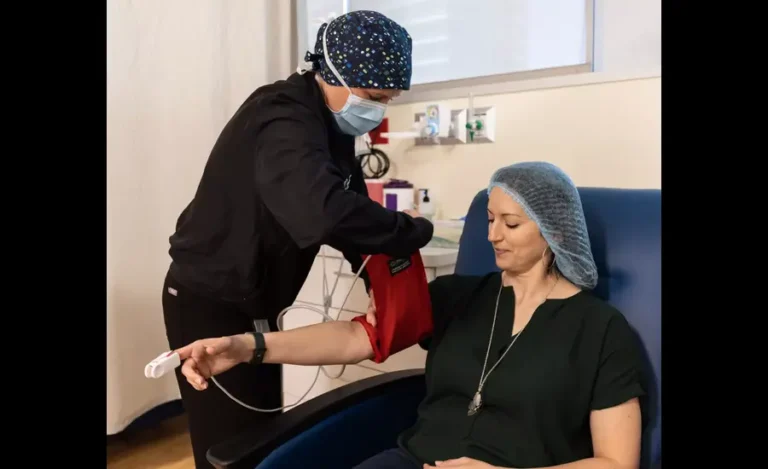How to Cope with Cocaine Withdrawal Symptoms
Cocaine withdrawal symptoms can feel overwhelming, but with the right approach, you can get through it. Knowing what to expect is key to managing those tough moments. Don’t worry—you’re not alone in this process. Support, both professional and personal, can make the journey to recovery much easier.
In this guide, we’ll share simple, effective ways to cope with withdrawal. Whether you’re looking for self-care tips or professional options, we’ve got you covered. Let’s start by understanding what withdrawal feels like and how you can regain control.
Understanding Cocaine Withdrawal: What to Expect
Cocaine withdrawal can be tough, but knowing what to expect can make it more manageable. When you stop using cocaine, your body goes through several changes as it adjusts to life without the drug. Here’s what you need to know.
Common Symptoms
- You might feel unusually tired or have little energy. This is because your body is adjusting to the absence of the stimulating effects of cocaine.
- Feelings of sadness, anxiety, or irritability are common. Your brain is trying to rebalance its chemicals, which can affect your emotions.
- Many people notice they feel hungrier than usual. This happens as your body tries to find new ways to feel pleasure and satisfaction.
- You may experience intense urges to use cocaine again. These cravings are part of the withdrawal process and can be challenging to handle.
Professional Support: Why You Don’t Have to Go Through It Alone
Facing cocaine withdrawal can be really tough, but you don’t have to handle it by yourself. Professional support is available and can make a big difference in your recovery journey. Here’s why reaching out for help is so important.
Types of Professional Support
Detox Programs: These are specially designed to help you safely manage withdrawal symptoms. Medical professionals monitor your health and provide medications to ease discomfort.
Inpatient Rehab: Inpatient rehab involves staying at a treatment facility where you receive 24/7 care. This helps keep you focused on recovery, away from daily stressors and triggers.
Outpatient Rehab: If you prefer not to stay overnight, outpatient programs allow you to attend therapy and support sessions while living at home. It’s a flexible option that still provides structured help.
Counseling and Therapy: Regular sessions with a therapist can help you deal with emotional challenges and develop coping strategies. Therapy also addresses the reasons behind your cocaine use.
Why Professional Support Matters
Professional support offers guidance and medical care tailored to your needs. It helps manage withdrawal symptoms safely and provides tools for long-term success. Plus, having a team of experts can boost your motivation and increase your chances of recovery.
Coping Mechanisms to Manage Cocaine Withdrawal Symptoms
Coping with cocaine withdrawal symptoms can be challenging, but having the right strategies can make a big difference. By using effective coping mechanisms, you can manage your symptoms better and stay focused on your recovery.
Physical Coping Strategies
Stay Hydrated and Eat Well: Drinking plenty of water and eating balanced meals can help your body recover. Focus on foods rich in vitamins and minerals to support overall health.
Get Enough Sleep: Quality sleep is crucial for recovery. Try to maintain a regular sleep schedule to help your body and mind heal.
Exercise Regularly: Gentle activities like walking or stretching can boost your mood and energy levels. Exercise also helps your body adjust to withdrawal.
Emotional and Mental Coping Strategies
Practice Mindfulness and Relaxation Techniques: Techniques like deep breathing and meditation can help calm your mind and reduce stress. These practices can also help you manage cravings.
Engage in Therapy: Talking to a therapist can provide emotional support and practical strategies for dealing with cravings and mood swings.
Social and Environmental Coping Strategies
Build a Support Network: Surround yourself with friends and family who support your recovery. They can offer encouragement and help you stay motivated.
Avoid Triggers: Stay away from situations or people that might tempt you to use cocaine again. Creating a safe environment helps reduce the chance of relapse.
Medication-Assisted Treatment: Is it Right for You?
Medication-assisted treatment (MAT) can be a helpful option for managing cocaine withdrawal symptoms. It involves using medications to support your recovery and make the process more manageable. But how do you know if MAT is right for you? Let’s break it down.
What is Medication-Assisted Treatment?
MAT combines medications with therapy to help people overcome addiction. The medications can reduce withdrawal symptoms, cravings, and help stabilize mood. This approach is often used alongside counseling to address both the physical and emotional aspects of addiction.
Benefits of MAT
Reduces Withdrawal Symptoms: Medications can help ease the discomfort of withdrawal, making it easier to focus on recovery.
Manages Cravings: Some medications can lessen the strong urges to use cocaine, helping you stay on track.
Supports Overall Recovery: By combining medication with therapy, MAT addresses both the physical and mental challenges of addiction.
Lifestyle Changes to Prevent Relapse
Making lifestyle changes is crucial to prevent relapse after overcoming cocaine addiction. By adopting healthy habits and creating a supportive environment, you can strengthen your recovery and stay on track. Let’s explore some key changes that can help you maintain your progress.
Build a Healthy Routine
Create a Daily Schedule: Having a structured daily routine helps keep you focused and reduces the chances of falling back into old habits. Plan your days with activities that keep you engaged and positive.
Set Achievable Goals: Establishing short-term and long-term goals can give you direction and motivation. Celebrate your achievements, no matter how small, to stay encouraged.
Adopt Healthy Habits
Exercise Regularly: Physical activity is not only good for your health but also boosts your mood and reduces stress. Aim for activities you enjoy, like walking, jogging, or yoga.
Eat a Balanced Diet: Nourishing your body with healthy foods supports your overall well-being and helps manage cravings. Focus on fruits, vegetables, whole grains, and lean proteins.
Build a Supportive Environment
Connect with Positive People: Surround yourself with friends and family who support your recovery. Their encouragement and understanding can make a big difference.
Avoid Triggers: Stay away from situations, places, or people that might tempt you to use cocaine again. Creating a safe space helps you stay focused on your recovery.
Conclusion
Coping with cocaine withdrawal is challenging, but it’s a crucial step toward recovery. With the right strategies, support, and self-care, you can manage symptoms and avoid relapse. Remember, every day you move forward is progress. Stay strong, stay focused, and take it one step at a time.





